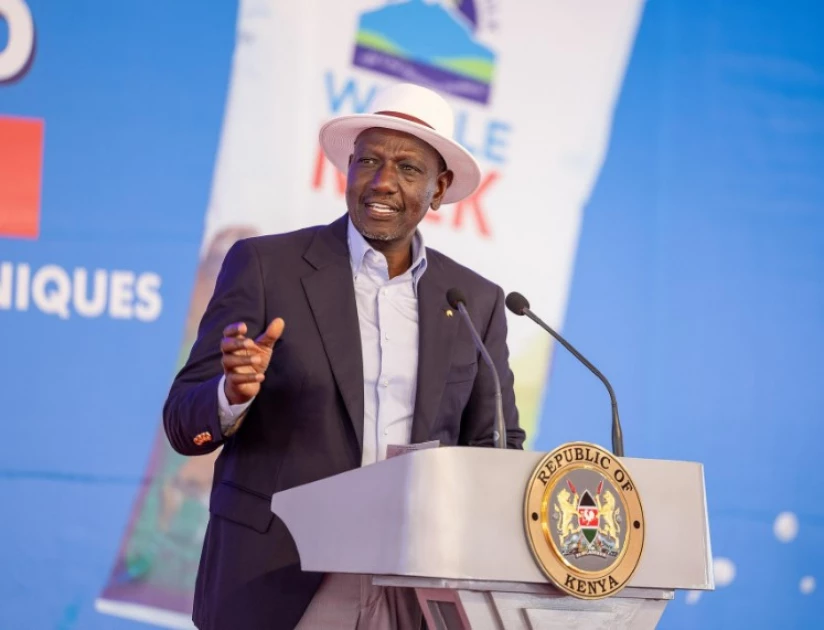President William Ruto has challenged Kenya Tea Development Authority (KTDA) managed factories to prioritize value addition to increase earnings for tea farmers.
He made the remarks during the handover of Sh2.65 billion recovered from the collapsed Chase and Imperial Banks. The funds, which belonged to farmers, will now be returned.
Tea Earnings on the Rise
Ruto highlighted that reforms in the agriculture sector have already improved tea earnings:
- Average price of green leaf tea rose from Sh51 per kg in 2022 to Sh64 in 2023.
- Total tea export earnings increased from Sh138 billion in 2022 to Sh215 billion in 2024, with Sh181 billion from exports.
The President aims to raise total earnings to Sh280 billion by 2027 through value addition.
Focus on Processed and Orthodox Tea
Kenya currently produces 598 million kg of tea, including 13 million kg of orthodox tea, which fetches higher prices than CTC tea.
Ruto emphasized the need for more processed tea, saying Parliament has removed taxes on packaging materials. Five new companies have been licensed to start local value addition, while investors from China will be encouraged to process tea locally, creating jobs and boosting exports.
Modernization and Branding
To address worn-out equipment, a Sh3.7 billion facility under Kenya Development Corporation has been established to modernize factories. More funds will be added if necessary.
Ruto also stressed the need for a Kenyan tea brand in the global market, noting that local tea is often sold internationally under foreign brands.
Transparency Through E-Procurement
The President reaffirmed that digital procurement of government goods will continue to prevent corruption. “We lose 40% of government money through procurement inefficiencies,” he said. Officials unwilling to embrace e-procurement are advised to resign.
Agriculture at the Heart of Kenya’s Economy
Ruto concluded by stating that agriculture is Kenya’s economic backbone, contributing nearly 50% of GDP, creating jobs, and ensuring food security. His government has registered 6.5 million farmers, distributed 21 million bags of subsidized fertilizer, dismantled cartels, and opened new markets.

